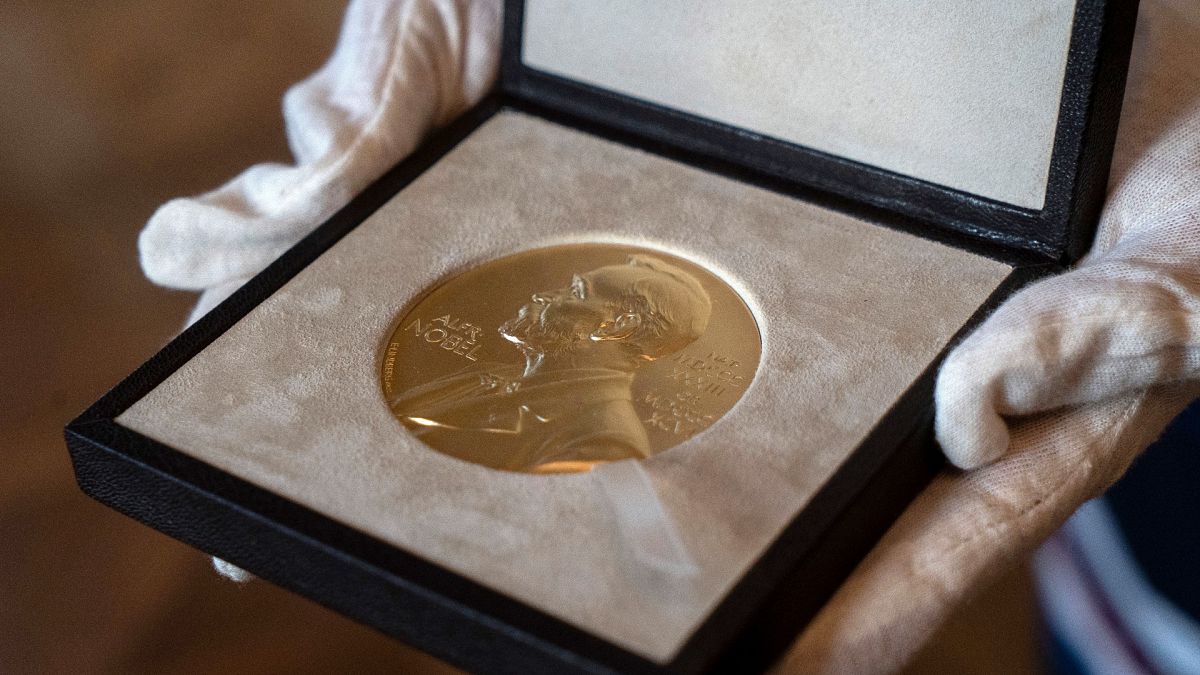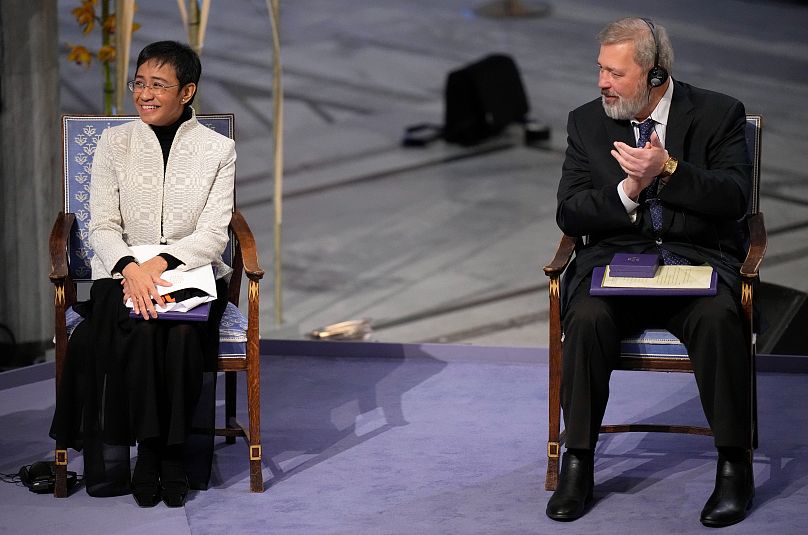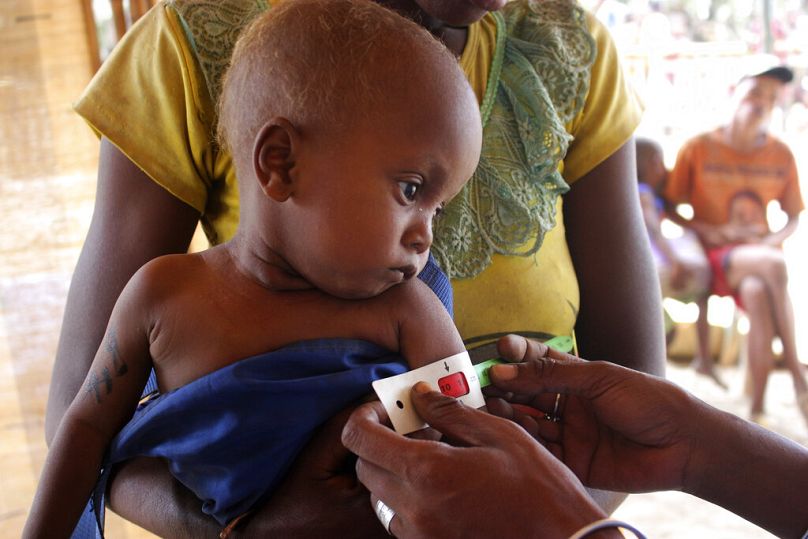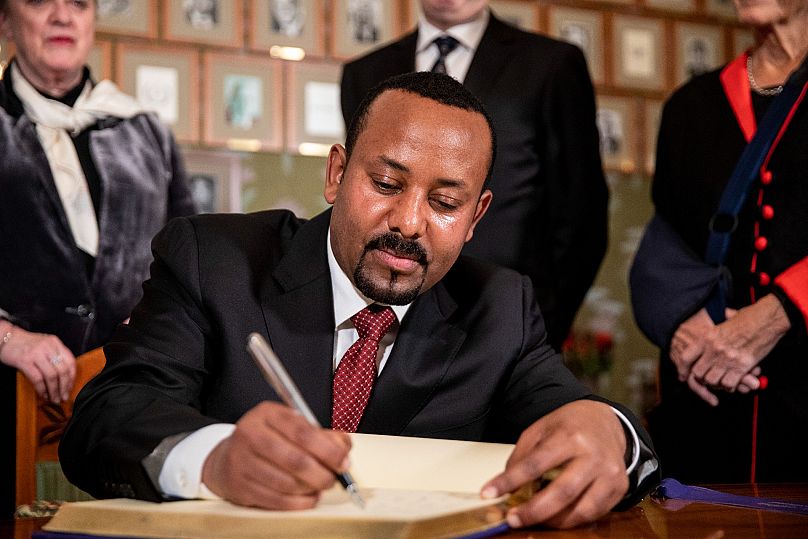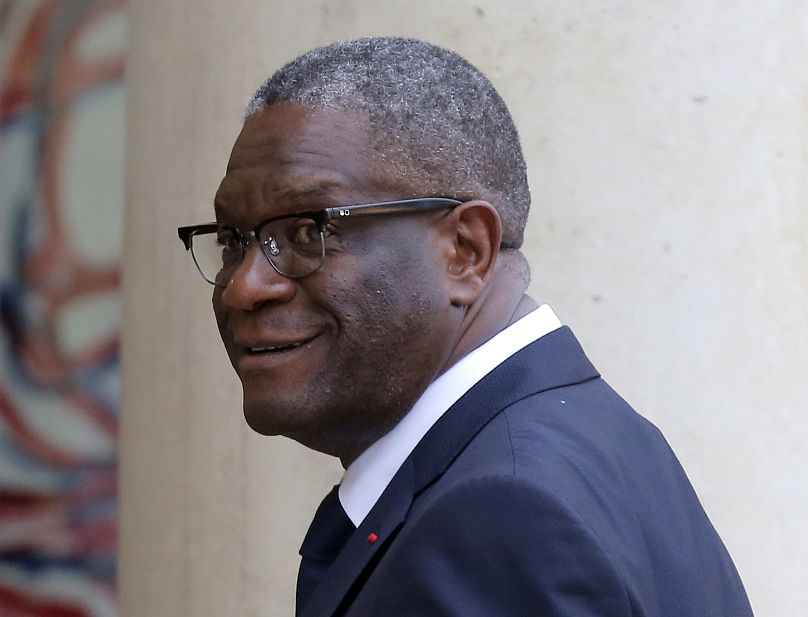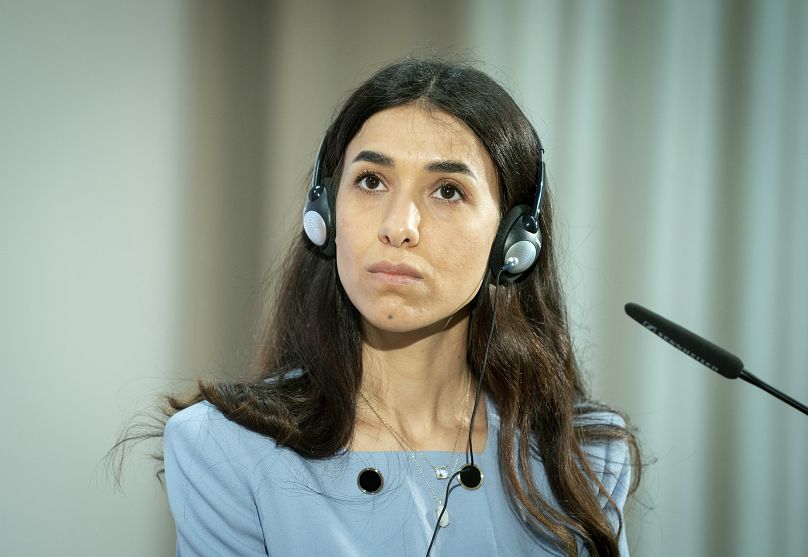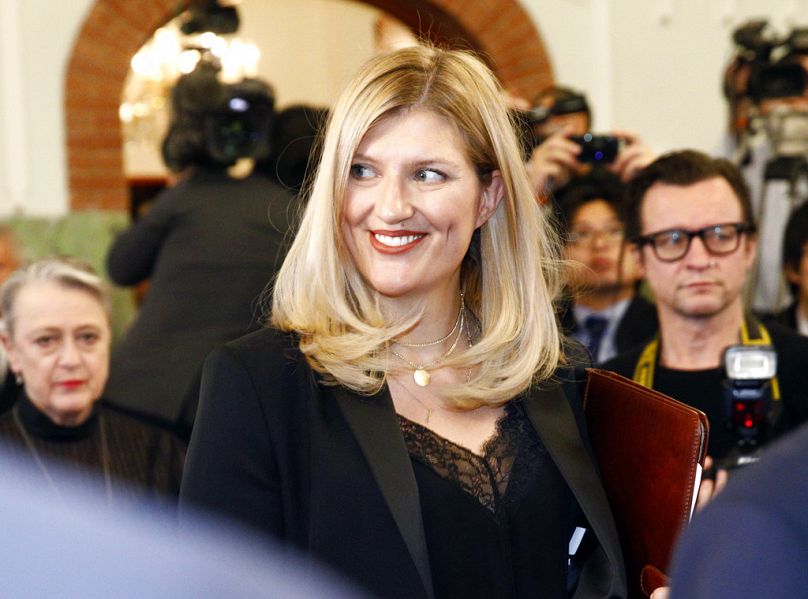The Prize has been awarded 101 since it was introduced in 1901.
This year's Nobel Peace Prize winner is set to be announced on Friday.
The prize has been awarded 102 times since it was first established in 1901, with the winner selected for their outstanding work towards peace.
The youngest-ever winner is Malala Yousafzai, who was just 17 when she won.
Here's a refresher of who has won the Nobel Peace Prize in the last five years.
2021: Dmitry Muratov and Maria Ressa
Independent journalists operating in Russia and the Philippines won the Nobel Peace Prize in 2021 for "their efforts to safeguard freedom of expression".
Dmitry Muratov is one of the founders of the independent Russian newspaper Novaya Gazeta in 1993, while Maria Ressa co-founded Rappler, a Filipino news website.
Muratov said an unknown person attacked him by pouring red paint into his train compartment while travelling from Moscow to Samara, around six weeks after Russia launched its invasion of neighbouring country Ukraine.
He shared a selfie in the aftermath and claimed the perpetrator shouted "Muratov, here’s one for our boys” during the attack.
2020: World Food Programme
Last year, the coveted prize went to the United Nations' World Food Programme "for its effort to combat hunger, for its contribution to bettering conditions for peace in conflict-affected areas and for acting as a driving force in efforts to prevent the use of hunger as a weapon of war and conflict".
The Nobel jury flagged that the organisation had provided assistance to close to 100 million people in 88 countries in 2019 and that the COVID-19 pandemic had contributed to a "strong upsurge" in the number of victims of hunger in the world.
2019: Abiy Ahmed Ali
Ethiopia's Prime Minister was awarded the prize for "his efforts to achieve peace and international cooperation, and in particular for his decisive initiative to resolve the border conflict with neighbouring Eritrea".
But a year after winning the war, Abiy Ahmed was leading the country when it began a war against regional forces in Tigray, which both sides blame on each other.
Since the conflict erupted in November 2020, there have been reports of human rights violations from both sides, thousands of civilian casualties and warnings that a "humanitarian catastrophe" is underway, according to the UN.
2018: Denis Mukwege and Nadia Murad
The two were rewarded for "their efforts to end the use of sexual violence as a weapon of war and armed conflict".
Mukwege, 66, is a Congolese gynaecologist, surgeon and founder of the Panzi Hospital in Bukavu, a city in the eastern Democratic Republic of the Congo, where thousands of victims of sexual violence during armed conflicts have been treated.
He has been relentless in his work, despite attempts on his life and earlier this month, as world leaders prepared to gather at a UN summit in New York, he reiterated his plea for an "international criminal tribunal" to be set up to investigate war crimes in his native country.
Murad, 28, is an Iraqi Yazidi human rights activist. When she was 19, the so-called Islamic State ransacked her village, killing 600 Yazidi men, including several members of her family. Murad and other young women were taken prisoner and subjected to beatings and rape. She eventually escaped, fled to a refugee camp and was later offered asylum in Germany.
Since her award, she has continued to shed light on the plight of Yazidi women and reiterated calls for justice as dozens of Zaxidi women and children remain unaccounted for.
2017: International Campaign to Abolish Nuclear Weapons (ICAN)
The organisation received the award for "its work drawing attention to the catastrophic humanitarian consequences of any use of nuclear weapons and for its ground-breaking efforts to achieve a treaty-based prohibition of such weapons."
The Nobel Committee praised ICAN for pressuring governments worldwide to pledge to cooperate to stigmatise and prohibit nuclear weapons.
